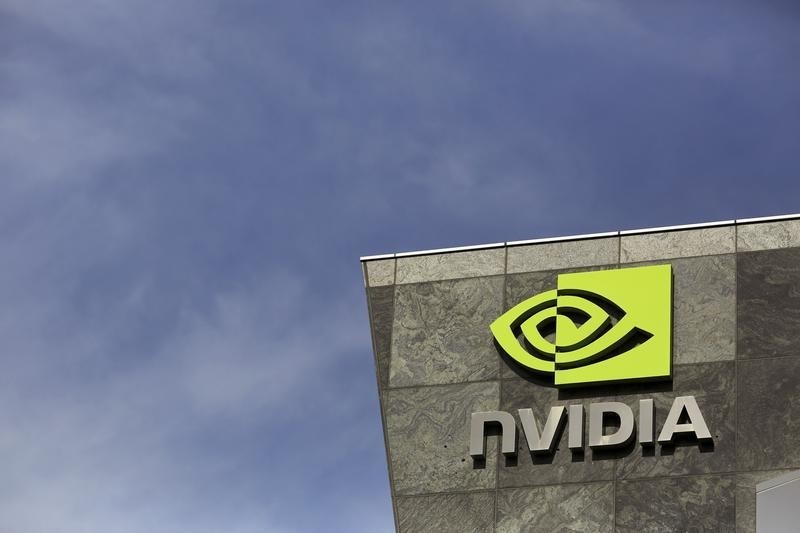TSX runs higher on rate cut expectations
By Christiana Sciaudone
Investing.com -- Nvidia (NASDAQ:NVDA) jumped almost 5% as two analysts threw their support behind the company, with one dumping on Intel (NASDAQ:INTC).
JPMorgan (NYSE:JPM) and Raymond James see strong sales ahead, with the latter pushing Nvidia to a strong buy from an outperform. Intel, on the other hand, has a bumpy road ahead, Raymond James analyst Chris Caso said in a note, downgrading shares to underperform from market perform. Intel rose 0.6%.
Chips are in massive demand amid a global shortage, pushing prices up and delaying production of items requiring electronic components, from iPhones to automobiles. That's pushed chip stocks like Nvidia and Intel to record and near-record levels, respectively. But not all companies are equal.
"In the short term, we think results will be more dependent on supply than demand given widespread shortages," Caso wrote in a note, according to StreetInsider. "In addition, we think improvement in enterprise, driven by a return to the office as well as the A10 launch, could drive better Datacenter growth in 2H, which is important for the stock."
"Our longer-term conviction is driven by the fact that NVDA has more shots on goal than anyone else in our coverage," Caso wrote.
Meanwhile, JPMorgan reiterated an overweight rating on Nvidia, largely on automobile opportunities.
"We believe that a significant part of NVIDIA’s overall success ($8B automotive revenue pipeline that will be unlocked over the next 6 years, with inflection starting in 2023/2024) is the company’s realization that leadership is driven by a combination of having the proper ecosystem (silicon, hardware, systems and software) and fostering strong industry relationships/partnerships," analyst Harlan Sur wrote in a note, according to StreetInsider. "The team has replicated this model across its core gaming and HPC and is driving a similar leadership profile in automotive."
Intel, however, isn't looking so good.
"Our underperform rating reflects not just the risk that Intel won’t reach that goal, but also the pain they will likely endure in pursuit of that goal in terms of capex, lost market share, and a shifting landscape in datacenter that will make the industry less dependent on Intel," Caso said.
The analyst is also concerned about Intel's high dependence on the PC market, and a need to ramp up investments, which investors will have to pay for.
Both companies have met or beat earnings results over the past four quarters, with Intel reporting profit of $1.52 for the most recent period. Nvidia said its earnings per share came in at $3.10.
